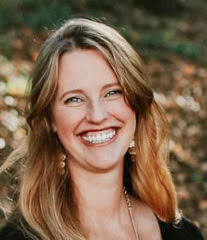|
Group spiritual direction is a wonderful and unique experience. It is a great opportunity for a number of people to come together and participate in mutual discernment, encouragement, and growth. After a trauma, particularly one that is experienced collectively by a community or congregation, group direction can provide deep healing and a needed sense of unity as those affected come together to process what has happened. Group direction functions somewhat differently than individual direction. A more definite structure is required to help the group maintain focus, to allow time for multiple individuals, and to allow space for prayerfulness and discernment. If the group has come together for the purpose of processing a collective trauma, it will be helpful to have an agreed upon structure for time together to help provide a safe container for the survivors (for example the 4x4x4 method described by Diane Millis). It will also be helpful to name the purpose for which the group is meeting. Is this group meeting in order to debrief what has happened? Meeting to grieve together? To pray for healing and a road forward? Some combination? Being sensitive to both the collective expressions as well as the individual experiences will be necessary. If the group was already established when the traumatic incident occurred, it will be worth discussing whether to change focus for a season (acknowledging that even if the group’s stated purpose does not change, the individual experiences of participants will be brought into sessions). Perhaps what was a formal meeting takes on a more informal feel for awhile, or vice versa. Perhaps the group decides to include food or even a full meal with their time as a way of building community. Discernment will also be needed to determine whether the facilitator of the group functions as a member - sharing their own experiences and processes - or functions as a container - holding space for the other members of the group. As always, as a formal spiritual director or group facilitator, having one’s own space for supervision and processing is a necessity. As the group processes what has happened collectively, there may be a variety of time and ways that grief, fear, anger, hope, and gratitude are expressed by the different people participating. It is also likely that words will often fail to express the feelings, fears, and hopes of the group members. Collective trauma, as its name implies, affects not only individuals but also the basic functioning of the group. A community - whether that is meant to describe people who live close to one another, people who share sacred spaces like a congregation, or people who meet together for other shared purposes - is something that is greater than the sum of its parts. It has a spirit of its own that can be affected by damage done to any individual component. Damage sustained by a building for example can be just as upsetting to the rhythms of daily life as damage to a person. Care can therefore be offered not only to participants but also to what the community symbolizes. The restoration of broader shared experiences or emphasis on healing traditions that foster people’s feelings of belonging and unity can help open the way for the healing of individual souls. As the group processes what has happened collectively, there may be a variety of time and ways that grief, fear, anger, hope, and gratitude are expressed by the different people participating. It is also likely that words will often fail to express the feelings, fears, and hopes of the group members. For this reason it may be helpful to rotate through different practices at different sessions, or to have several options available each time. These options may include:
Spiritual direction is a wonderful ministry to those who have experienced trauma because it can flex to meet the needs of both individuals and groups. I encourage you to learn about the uniquenesses of group direction so that this specialized form of care can be available to survivors seeking to spiritually process what has happened, together. Erin Jantz received her Master’s Degree in Spiritual Formation and Soul Care from the Institute for Spiritual Formation. She also holds a B.A. in developmental psychology and has furthered her education with trainings in trauma care from Boston University and intensives with Dr. Bessel Van Der Kolk. She has been practicing spiritual direction since 2012, helped to author ICTG's Spiritual Formation Resource Guide, and also teaches and speaks on a variety of spiritual formation topics. Erin lives in Southern California with her husband and their four marvelous children.
0 Comments
|
�
SPIRITUAL DIRECTION BLOG
From 2012-2020, this blog space explored expanding understanding and best practices for holistic health in the context of spiritual direction.
This website serves as a historical mark of work the Institute conducted prior to 2022. This website is no longer updated. Archives
September 2020
Categories
All
|



 RSS Feed
RSS Feed
